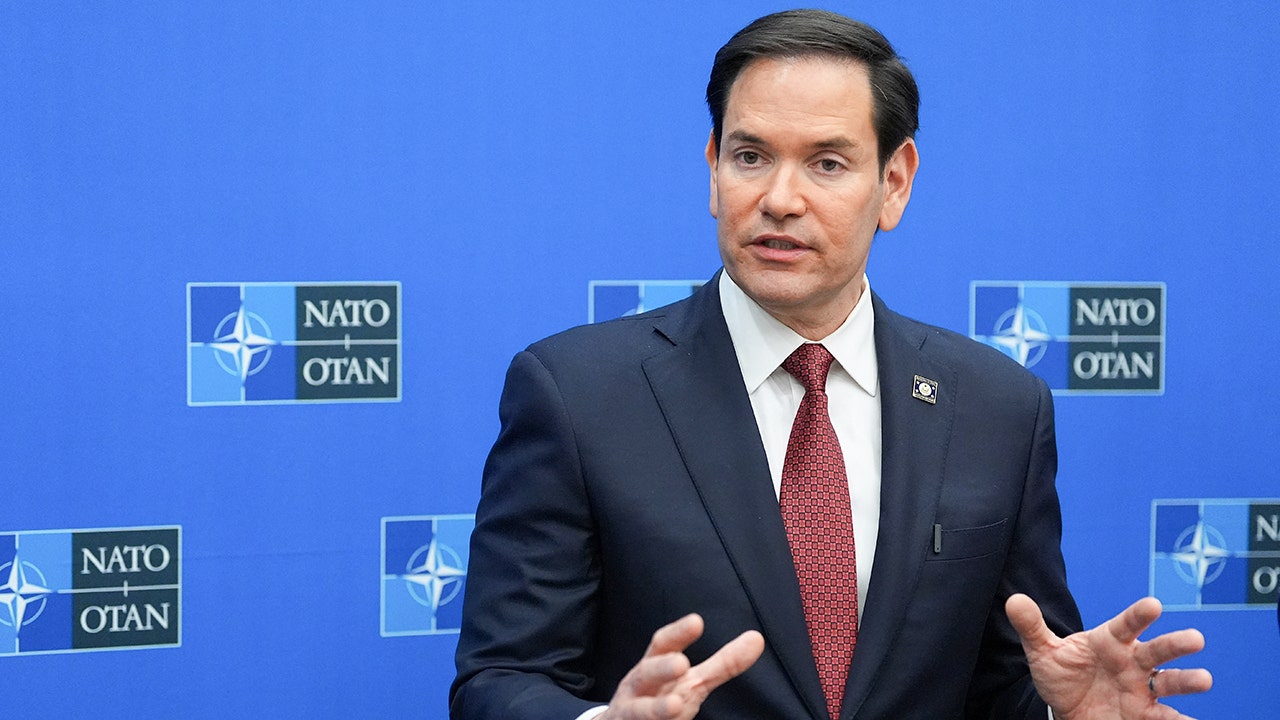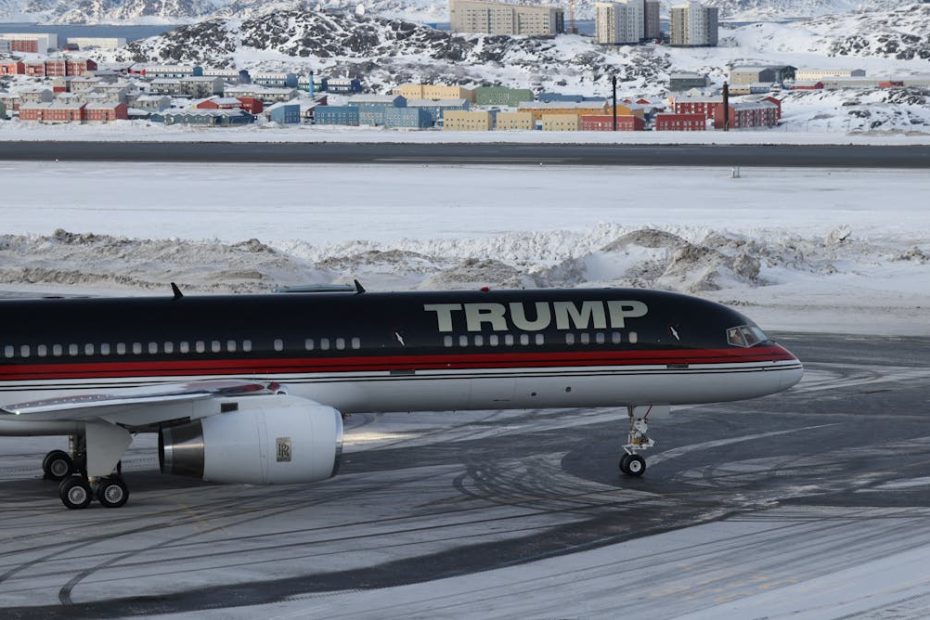4 reasons why the US might want to buy Greenland – if it were for sale, which it isn't
President-elect Donald Trump has sparked a diplomatic row by suggesting the United States needs to acquire Greenland for “national security” reasons and refusing to explicitly rule out the use of military force. Danish Prime Minister Mette Frederiksen said Greenland was an autonomous Danish territory and was “not for sale.”
Trump’s interest in Greenland is not new. He first expressed interest in the territory in 2019, but it never developed into any action.
It’s far from clear whether Trump has any actual plans to push any attempt by Washington to own Greenland this time around. But given the incoming president's repeated statements and invocations of national security concerns, it's worth considering what strategic value Greenland might actually have from the perspective of U.S. geopolitical priorities.
As a scholar of natural resources and Arctic geopolitical conflicts, I believe that Greenland’s value from an international political perspective can be viewed in four basic areas: minerals, military presence, Arctic geopolitics and the territory’s potential independence .
Mineral Issues
Greenland's most valuable natural resource is its vast mineral wealth, which has real potential to boost its economy. Identified deposits include precious metals such as gold and platinum, various base metals such as zinc, iron, copper, nickel, cobalt and uranium, and rare earth elements such as neodymium, dysprosium and praseodymium. A detailed 2023 summary released by the Geological Survey of Denmark and Greenland suggests that new mineral deposits will be discovered as the Greenland ice sheet continues to retreat.
Greenland’s rare earth resources are particularly important. These elements are critical not only to battery, solar and wind energy technologies, but also to military applications. If fully developed, the Kvanefjeld (Kuannersuit in Greenlandic) uranium and rare earth deposits would place Greenland among the world's top producers.
In the 2010s, Greenlandic leaders encouraged interest from outside mining companies, including leading Chinese companies, culminating in the award of a lease to Australian Energy Transition Mining (formerly Greenland Mining Limited).
When China's Shenghe Resources gained a major share in Energy Transition Minerals, it sent a red flag to Denmark, the European Union and the United States, which believe China is seeking to expand its global dominance in the rare earths market while reducing Europe's own potential supply .
The problem was resolved in 2021 when Greenland's parliament banned all uranium mining, temporarily blocking further development of the Kvarne Fjord. That same year, the government also banned any further oil and gas activity. Predictably, most mining companies subsequently avoided Greenland, fearing that future political decisions would jeopardize any investment.
Fear of China abroad
China’s interest in Greenland goes back at least a decade.
In 2015, Greenlandic Minister of Finance and Interior Vittus Qujaukitsoq visited China to discuss possible investment in mining, hydropower, ports and other infrastructure projects. China Communications Construction Company bid to build two airports, one in the capital Nuuk and the other in Ilulissat.
Another Chinese company, Junan Group, has offered to buy an abandoned Danish naval base in northeast Greenland, while the Chinese Academy of Sciences has asked for a permanent research center and a satellite ground station near Nuuk.
None of this sat well with the appetite of the first Trump administration, which pressured Denmark and the Greenlandic government to believe that China's significant official presence on the island was unwelcome. The Danes and Greenlanders agreed, rejecting Chinese attempts to invest in Greenland projects.
The Trump administration in particular believes China's interest in Greenland has hidden commercial and military motives, concerns that continued when the Biden administration recently lobbied another Australian mining company not to sell its Greenland assets to a Chinese company.
America's long-term interests
The United States has had a long-term security interest in Greenland since 1946, when it provided $100 million worth of gold bullion to Denmark. The Danes politely but firmly refused, with their foreign minister saying he did not feel “we owe them the whole island”.
In the early 1950s, the United States established Thule Air Force Base 750 miles (about 1,200 kilometers) north of the Arctic Circle. Originally a missile warning and radio communications site, it was handed over to the newly formed U.S. Space Force in 2020 and renamed Pitufik Space Base in 2023.
Pitufik, the nation's northernmost military installation, has updated radar and tracking capabilities to provide missile warning, defense and space surveillance, and satellite command missions. While it also supports Arctic-focused scientific research, the base is designed to enhance the military capabilities of the United States and its allies in the Arctic.
The base's ability to track shipping, air and satellite positions has practical and symbolic implications for U.S. strategic interests in the Arctic. As a result, much of the U.S. foreign policy community, not just those around Trump, is concerned about any significant Chinese presence in Greenland, whether temporary or permanent.
arctic geopolitics
Greenland is located between the Northern Sea Route and the Northwest Passage, two Arctic routes whose importance is increasing as sea ice shrinks. By around 2050, the transpolar sea route may cross the central Arctic Ocean and pass along the east coast of Greenland. Furthermore, the island is the basis of Denmark’s claims to the Arctic – claims that are also contested by Russia and Canada.
Although international law does not recognize the sovereignty of any state in international waters, this has done little to end the diplomatic tug-of-war over the polar regions. The matter is far from trivial: sovereignty would give a country access to potentially important oil, gas and rare earth resources, as well as superior scientific and military access to future transpolar sea routes.
However, this dispute over Arctic ownership is only part of a geopolitical battle over offshore territories in the region. Russia is increasingly militarizing its vast coastal areas, countering with NATO military exercises in northern Scandinavia, while China is pushing into the Arctic with Moscow's help, backed by icebreakers and agreements on research and commercial projects Several research stations have been established.
The Chinese government also claims rights to navigation, fishing, overflight, and investment in oil and gas projects in the region.
Is Greenland a good place for Greenlanders?
All of these factors help decipher the realities involved in the U.S.-Denmark-Greenland relationship. Despite what Trump says, I believe it is unlikely that he would actually use U.S. military force to occupy Greenland, and whether he would use coercive economic policy in the form of tariffs on Denmark in order to gain access to Greenland in negotiations to buy Greenland Chips, that's an open question.
Yet while Trump and other foreign policy outsiders view Greenland from an outside strategic and economic perspective, the island is home to nearly 60,000 people, 90 percent of whom are Inuit, many of whom are wary of foreign designs on their territory. Be skeptical.
In fact, Greenland voted to seek statehood in 2008. The island receives 500 million euros ($513 million) in annual subsidies from Denmark and is seeking foreign investment as it seeks to further its economic independence.
Greenland’s move toward independence, backed by Beijing’s strategy to become an Arctic player, has also drawn Chinese interest. Beijing's thinking may be that an independent Greenland would be less tied to NATO and the EU and therefore more open to investment from further afield.
Ironically, Trump's recent comments have the potential to achieve a very different goal than theirs, which is to encourage Greenland's Prime Minister Mute Egede to propose a referendum on full independence in 2025.
“Now is the time for our country to take the next step,” he said. “We must work to remove…the yoke of colonialism.”







